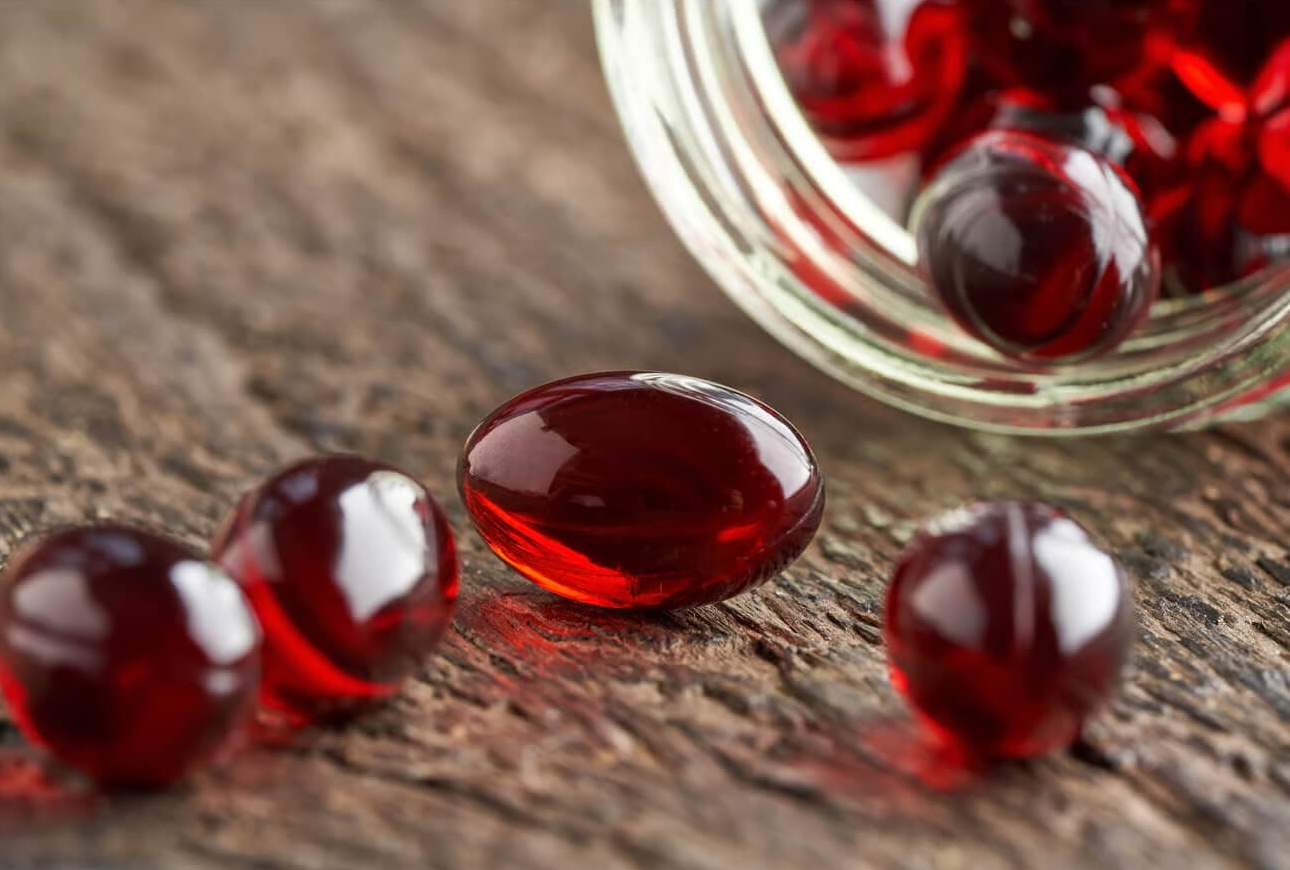Krill Oil Versus Fish Oil: Which Is Better For Your Heart Health?
Is krill oil truly a smarter, cleaner alternative to fish oil—or just a shiny new way to spend more on omega-3s?

Let’s chat krill oil. The bright red supplement is buzzing with claims like “superior absorption” and “cleaner omega-3s.” But should you be swapping your fish oil for these tiny Antarctic crustaceans?
“Tiny Antarctic What?”
Krill are shrimp-like creatures that thrive in the cold oceans off Antarctica, Canada, and Japan and are a staple in the diet of whales, seals, penguins, squid, and fish. Because krill sit at the bottom of the food chain, they contain less mercury than larger fish that accumulate toxins over time. (Krill: 1. Fish: 0).
The main reason people go for krill oil is because it has EPA and DHA, two omega-3 fatty acids linked to heart health, brain function, and reduced inflammation.
Fish oil has these, too. But krill has a secret weapon up its crustacean sleeve: absorption.
Krill Oil Versus Fish Oil
The difference in a nutshell:
- Fish Oil: The omega-3s are bound to triglycerides, which need to be broken down by your liver. Think of it as a multi-step process before your body can use them.
- Krill Oil: The omega-3s are bound to phospholipids (the same type of fat that makes up your cell membranes). This means they integrate directly into your cells without needing liver processing first.
A study found that krill oil got 80% more omega-3s into participants' bloodstreams compared to fish oil's 60%. Krill oil also contained 22% "free" omega-3s ready for immediate use, while fish oil had none (Schuchardt et al., 2011).
The Benefits of Krill Oil
There’s evidence that suggests krill oil could:
- Nudge your cholesterol in the right direction: A meta-analysis of 1,458 participants found that krill oil modestly reduced both total and LDL cholesterol.
- Have a place in your skincare routine. Studies found it can help with everything from UV damage to wound healing to reducing wrinkles. (Note that most of the evidence comes from cell and animal studies.)
- Help with knee pain. A study of 235 people with knee osteoarthritis found that 4 grams daily of krill provided modest improvements in knee pain and stiffness.
The Downsides of Krill Oil
Krill oil costs 2-4 times more than fish oil per gram of omega-3s. That’s partly because harvesting these crustaceans from remote frigid waters isn't exactly a…budget operation.
There's also the environmental part of the equation. Because krill are crucial to the ecosystem, there’s concern that overharvesting could disrupt the food supply. (If you opt for krill oil, be sure to get a brand certified by the Marine Stewardship Council.)
The price tag and environment aren’t the only considerations:
- Limited long-term data: While fish oil has decades of robust research, krill oil studies are mostly small and short-term.
- Quality inconsistency: Krill oil spoils more easily, and quality varies significantly between brands (some "krill oil" products are actually fish oil blends in disguise!).
- Modest benefits: The superior absorption is real, but the actual health improvements tend to be incremental rather than dramatic.
To Krill or Not to Krill
Krill oil delivers on some of its promises. But at 2-4 times the cost of fish oil for pretty incremental improvements, it's more of a premium upgrade than a game-changer.
Honestly, both krill and fish oil pale in comparison to eating actual fatty fish (salmon, mackerel, sardines, etc) 2-3 times a week. But if your budget allows, and you've struggled with traditional fish oil? Krill oil might be worth the splurge.
Just keep your expectations small as the crustaceans themselves. 🦐


%20Score.jpg)